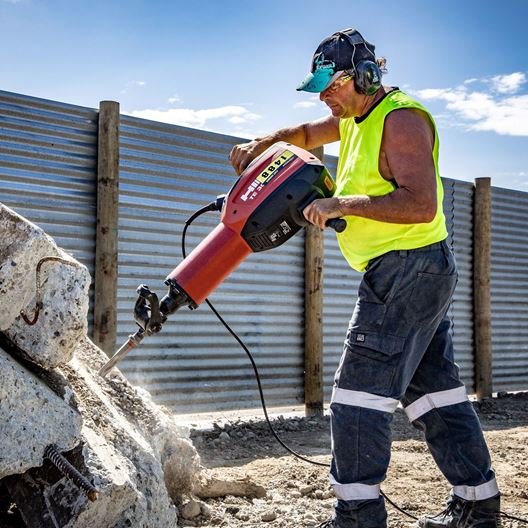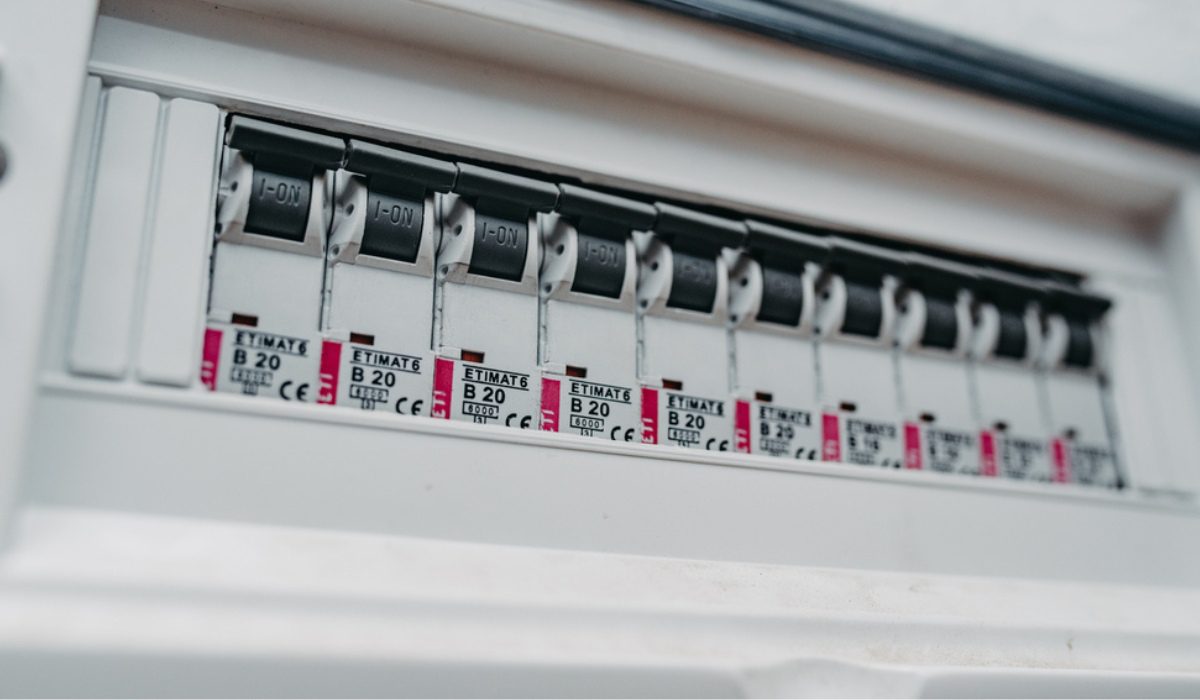Impressive Info About What Happens If You Use Too Big Of A Breaker
:max_bytes(150000):strip_icc()/circuit-breakers-how-to-reset-a-circuit-breaker-1152756-hero-e69fdfecd2d64a06800fa0f77089c98f.jpg)
The Perilous Path of Oversized Breakers
1. Understanding the Risks of Using a Breaker That's Too Big
So, you're staring at your electrical panel, contemplating a breaker upgrade. Maybe you're adding a new appliance, or perhaps you're just tired of those pesky trips. But hold on a minute! Before you grab that bigger breaker, let's chat about why using one that's too large can be a really, really bad idea. Think of it like this: it's like putting a giant engine in a tiny car — sure, you might get some extra power, but you're also asking for trouble.
Electrical breakers are designed to be the guardians of your home's wiring. They're the first line of defense against overloads and short circuits. When the current flowing through a circuit exceeds the breaker's rating, it trips, cutting off the power and preventing the wires from overheating and potentially starting a fire. But what happens when that guardian is asleep at the wheel? What if it's too lenient and allows too much current to flow before reacting? Well, that's when things can get dicey.
Imagine your electrical wiring as a network of roads. Each road (wire) has a certain capacity for traffic (electrical current). A properly sized breaker acts like a traffic cop, ensuring that the road doesn't get overloaded. If too many cars (current) try to use the road at once, the cop steps in and shuts it down. But if you put a really lax traffic cop in charge — an oversized breaker — they might let way too many cars through, leading to a massive traffic jam (overheating wires) and potentially a fiery crash (electrical fire). Not a pretty picture, right?
Therefore, choosing the right breaker size is not just a suggestion; it's a safety imperative. It's about protecting your home, your family, and yourself from the very real dangers of electrical hazards. So, let's delve a little deeper into the potential consequences of going overboard with breaker size and see what safeguards are in place to prevent this from happening.

The Downside
2. A Cascade of Potential Problems
The core problem with an oversized breaker is that it won't trip when it should. It allows more current to flow through the wiring than the wiring is designed to handle. This can lead to several unpleasant, and potentially dangerous, outcomes.
First, and perhaps most alarmingly, it creates a significant fire hazard. When wires are overloaded, they heat up. The insulation around the wires can melt, exposing the bare conductors. This not only increases the risk of a short circuit but also provides a ready source of fuel for a fire. It's like wrapping your wires in kindling — not exactly ideal!
Second, even if a fire doesn't erupt, you can still experience damage to your electrical system. Overheated wires can damage outlets, switches, and other components. This can lead to costly repairs and, in some cases, require a complete rewiring of your home. Think of it as slowly cooking your electrical system from the inside out.
Finally, oversized breakers can mask underlying problems. If a circuit is tripping frequently, it's a sign that something is wrong. Maybe there's a short circuit, an overloaded circuit, or a faulty appliance. By simply installing a larger breaker, you're not fixing the problem; you're just ignoring the warning signs. It's like putting a bandage on a broken leg — it might make you feel better temporarily, but it's not going to solve the underlying issue.

How To Replace Circuit Breaker?
Decoding Amperage
3. Understanding the Relationship Between Wire Gauge and Breaker Size
So, how do you make sure you're not installing a breaker that's too big? The key is to understand the relationship between wire gauge and breaker size. The gauge of a wire refers to its thickness. Thicker wires can safely carry more current than thinner wires. Electrical codes specify the maximum current that a particular gauge of wire can handle.
For example, 14-gauge wire is typically rated for 15 amps, while 12-gauge wire is rated for 20 amps, and 10-gauge wire is rated for 30 amps. When selecting a breaker, you need to make sure that its amperage rating does not exceed the ampacity of the wire it's protecting. Using a breaker with a higher amperage rating than the wire's ampacity is a recipe for disaster.
Think of it like this: the wire is the pipe, and the electricity is the water flowing through it. A thinner pipe can only handle so much water before it bursts. Similarly, a thinner wire can only handle so much electricity before it overheats. The breaker is like a valve that shuts off the water if it exceeds the pipe's capacity. But if you replace that valve with one that allows more water to flow through, you're going to end up with a burst pipe (overheated wire).
Always check the wire gauge before installing a breaker. The wire gauge is usually printed on the cable's outer jacket. If you're unsure, consult a qualified electrician. They can help you determine the correct breaker size for your wiring and ensure that your electrical system is safe and up to code. Don't guess — your safety depends on it!

Safety Nets
4. Safeguards and Regulations in Place
You might be wondering, if using the wrong breaker size is so dangerous, why isn't there a foolproof system to prevent it? Well, there are actually several safeguards in place, although they're not always foolproof. The first line of defense is the electrical code itself. The National Electrical Code (NEC) sets standards for safe electrical installations, including specifying the correct breaker sizes for different wire gauges and applications. Local building codes also often incorporate the NEC or have their own similar regulations.
Another safeguard is the requirement for electrical inspections. In many jurisdictions, new electrical installations or modifications must be inspected by a qualified inspector to ensure that they comply with the electrical code. This includes verifying that the correct breaker sizes have been used. However, inspections are not always required for minor repairs or upgrades, which means that there's still a risk of someone installing the wrong breaker size without getting caught.
Furthermore, reputable electricians are trained to select the correct breaker sizes for different wiring and applications. They understand the potential hazards of using oversized breakers and will always adhere to the electrical code. This is why it's always best to hire a qualified electrician for any electrical work, especially if you're not comfortable working with electricity yourself.
However, despite these safeguards, mistakes can still happen. Homeowners may attempt to do their own electrical work without the proper knowledge or training. Unscrupulous contractors may cut corners to save money. That's why it's so important to be aware of the risks of using the wrong breaker size and to take steps to protect yourself and your family.

DIY Dangers
5. Knowing Your Limits and Ensuring Safety
While some homeowners are comfortable tackling small electrical projects, such as replacing a light fixture or an outlet, working with circuit breakers is generally best left to the professionals. Electricity is dangerous, and even a small mistake can have serious consequences. If you're not sure what you're doing, it's always better to err on the side of caution and call a qualified electrician.
Specifically, you should always hire an electrician if you're: adding a new circuit, upgrading your electrical panel, experiencing frequent breaker trips, noticing signs of electrical problems, such as flickering lights or burning smells, or feeling unsure about any aspect of your electrical system. Trying to DIY these tasks can be risky and potentially illegal, depending on local regulations.
Think of it like performing surgery on yourself. Sure, you might be able to watch a few YouTube videos and figure out the basics, but are you really qualified to operate? Probably not! Similarly, while you might be able to find some online tutorials on how to install a circuit breaker, that doesn't mean you should. Electricity is a powerful force, and it deserves respect. Leave it to the experts.
In summary, while a slightly bigger breaker might seem like a quick fix for persistent tripping, the long-term consequences can be dire. Understanding the relationship between wire gauge and breaker size, knowing when to call a professional, and respecting the power of electricity are all crucial for ensuring the safety of your home and your loved ones. When in doubt, consult a qualified electrician. It's an investment in your safety that's well worth making.
